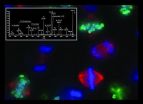(Press-News.org) COLUMBIA, S.C. — Dispersants are often used in oil spill responses because they may mitigate the environmental impacts of the spill by moving the oil from the water surface into the water column enhancing its biodegradation. While this process helps reduce the likelihood of oil exposure to marine wildlife such as seabirds and marine mammals, aquatic toxicity on marine communities from the dispersant and the chemically dispersed oil needs to be considered more carefully.
Scientists at Research Planning, Inc. and HDR Ecosystem Management evaluated the standard toxicity testing data used to inform dispersant decisions and published a critical review of their findings in the scientific journal Environmental Toxicology and Chemistry in March 2014. The authors found issues with the current practices, and lead author Adriana Bejarano notes, "Despite concerted efforts by the spill response community to propose and promote discussions on better laboratory practices, studies are still performed without consideration of such recommendations." Laboratory tests frequently used by decision makers do not adequately replicate the conditions in the field, such as sea state and weather, nor do they necessarily consider exposure durations (short-term vs. standard exposure) and concentrations (steady concentrations vs. spiked concentrations).
Bejarano's goal was to bring to light some of the common misconceptions and challenges in existing data, and to encourage decision makers to consider data quality when making decisions on the use of dispersants. "Data comparability is difficult because of the mixed messages coming from the scientific literature. Many believe that dispersants make oil more toxic, when in reality existing data generally do not support these claims. Being critical would be beneficial to the entire decision-making process."
INFORMATION:
http://onlinelibrary.wiley.com/doi/10.1002/etc.2501/abstract END
Offshore dispersant data and decisions
2014-03-06
ELSE PRESS RELEASES FROM THIS DATE:
Researchers identify a critical link between obesity and diabetes
2014-03-06
BOSTON – It's by now well established that obesity is a major risk factor for diabetes. But what exactly is it about extra body fat that leads to insulin resistance and blood glucose elevation, the hallmarks of diabetes?
Over the past several years, Beth Israel Deaconess Medical Center (BIDMC) endocrinologist Barbara Kahn, MD, has developed a large body of research suggesting that a molecule called retinol binding protein 4 (RBP4) plays a key role in the process. Kahn's lab was the first to show that elevated levels of RBP4 – previously known only for its role as a ...
Strategies on the Internet to discredit generic drugs
2014-03-06
Although there is widespread consensus among the scientific community that the composition of generic drugs is identical to that of brand name drugs, this is not the case among the public. In a four-year study of over 3,000 opinions on Spanish web pages, researchers at the National University of Distance Education (UNED) of Spain have identified communication strategies aimed at creating risk perceptions about generic drugs, which may influence the low usage of these drugs.
Generic drugs, which are copies of brand name drugs whose patent has expired, have exactly the ...
New research could help make 'roll-up' digital screens a reality for all
2014-03-06
Researchers from the University of Surrey worked together with scientists from Philips to further develop the 'Source-Gated-Transistor' (SGT) - a simple circuit component invented jointly by the teams.
Previously, they found that the component could be applied to many electronic designs of an analog nature, such as display screens. Through this current study, researchers have now shown that SGTs can also be applied to next-generation digital circuits.
SGTs control the electric current as it enters a semiconductor, which decreases the odds of circuit malfunction, improves ...
Researchers capture 'most complete' picture of gene expression in cancer cell cycle
2014-03-06
Uncontrolled cell growth and division is a hallmark of cancer. Now a research project led by the University of Dundee has provided the most complete description to date of the gene activity which takes place as human cells divide.
Researchers have managed to gather data which details the behaviour of protein molecules encoded by over 6000 genes in cancer cells, as they move through the cell cycle. The team has used advances in technology and data analysis to study how genes work over time in cancer cells, as opposed to capturing a `snapshot' of activity – a leap forward ...
Sudden cardiac death: Genetic disease ARVC more common than hitherto assumed
2014-03-06
The genetic disease ARVC leads to sudden cardiac death and is more common than it has been hitherto assumed. This is reported by an international team of researchers headed by Prof Dr Hendrik Milting from the Heart and Diabetes Center NRW in the "European Heart Journal". The molecular biologist working at the Ruhr-Universität's clinic in Bad Oeynhausen revealed that all families who are known to be affected by the disease share the same genetic origin. There must be other families in Europe who also carry the genetic mutation but who are not yet known.
Mutation initially ...
Study suggests higher levels of omega-3 in diet are associated with better sleep
2014-03-06
A randomised placebo-controlled study by the University of Oxford suggests that higher levels of omega-3 DHA, the group of long-chain fatty acids found in algae and seafood, are associated with better sleep. The researchers explored whether 16 weeks of daily 600 mg supplements of algal sources would improve the sleep of 362 children. The children who took part in the study were not selected for sleep problems, but were all struggling readers at a mainstream primary school. At the outset, the parents filled in a child sleep questionnaire, which revealed that four in ten ...
When art and science collide -- the masterpiece unmasked
2014-03-06
This news release is available in French. Gallery owners, private collectors, conservators, museums and art dealers face many problems in protecting and evaluating their collections such as determining origin, authenticity and discovery of forgery, as well as conservation issues. Today these problems are more accurately addressed through the application of modern, non-destructive, "hi-tech" techniques.
Dmitry Gavrilov, a PhD student in the Department of Physics at the University of Windsor (Windsor, Canada), along with Dr. Roman Gr. Maev, the Department of Physics ...
Half the survivors in 1 Japanese town have PTSD symptoms
2014-03-06
Though just two of Hirono's 5,418 residents lost their lives in Japan's mega-earthquake and tsunami, a new study shows that the survivors are struggling to keep their sanity.
One year after the quake, Brigham Young University professor Niwako Yamawaki and scholars from Saga University evaluated the mental health of 241 Hirono citizens. More than half of the people evaluated experienced "clinically concerning" symptoms of post-traumatic stress disorder. Two-thirds of the sample reported symptoms of depression.
Those rates exceed levels seen in the aftermath of other ...
Heart failure unknowns a roadblock to managing health
2014-03-06
Al Brommeland found a true partner in his wife Florence. Through 57 years of marriage they've proved a formidable team, swinging and bowing at square dances, kicking up dust in their clogs, and now in their golden years, taking daily strolls side by side.
When Al started experiencing irregular heart rhythm 12 years ago, the couple worked together to stay healthy. It hasn't been easy, both in terms of symptoms—emergency doctors stopped and restarted Al's heart eight times over the years—or finding answers to their questions about how to best manage his illness, recently ...
UCLA engineering team increases power efficiency for future computer processors
2014-03-06
Have you ever wondered why your laptop or smartphone feels warm when you're using it? That heat is a byproduct of the microprocessors in your device using electric current to power computer processing functions — and it is actually wasted energy.
Now, a team led by researchers from the UCLA Henry Samueli School of Engineering and Applied Science has made major improvements in computer processing using an emerging class of magnetic materials called "multiferroics," and these advances could make future devices far more energy-efficient than current technologies. ...


